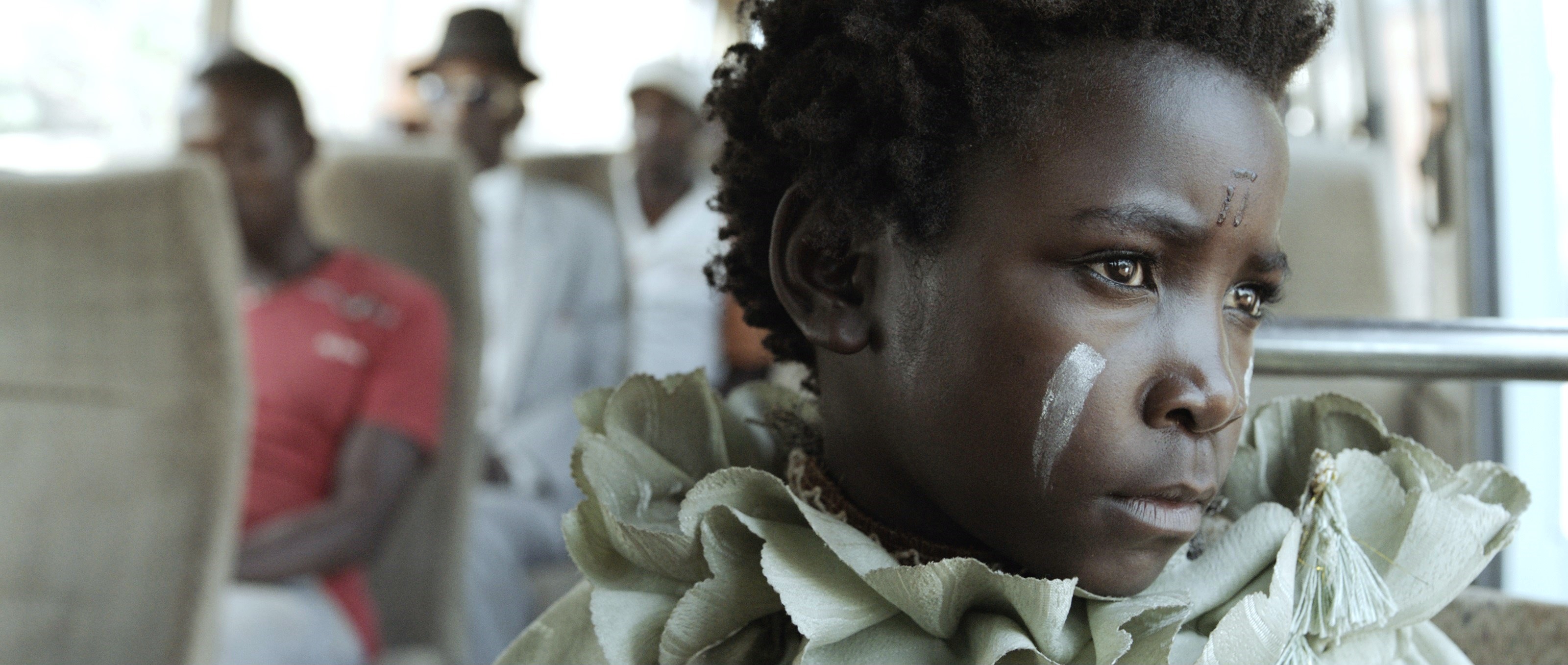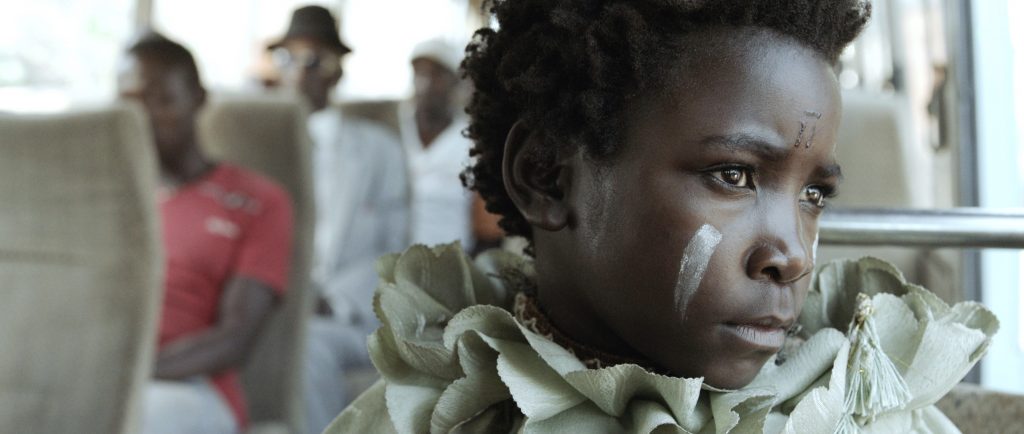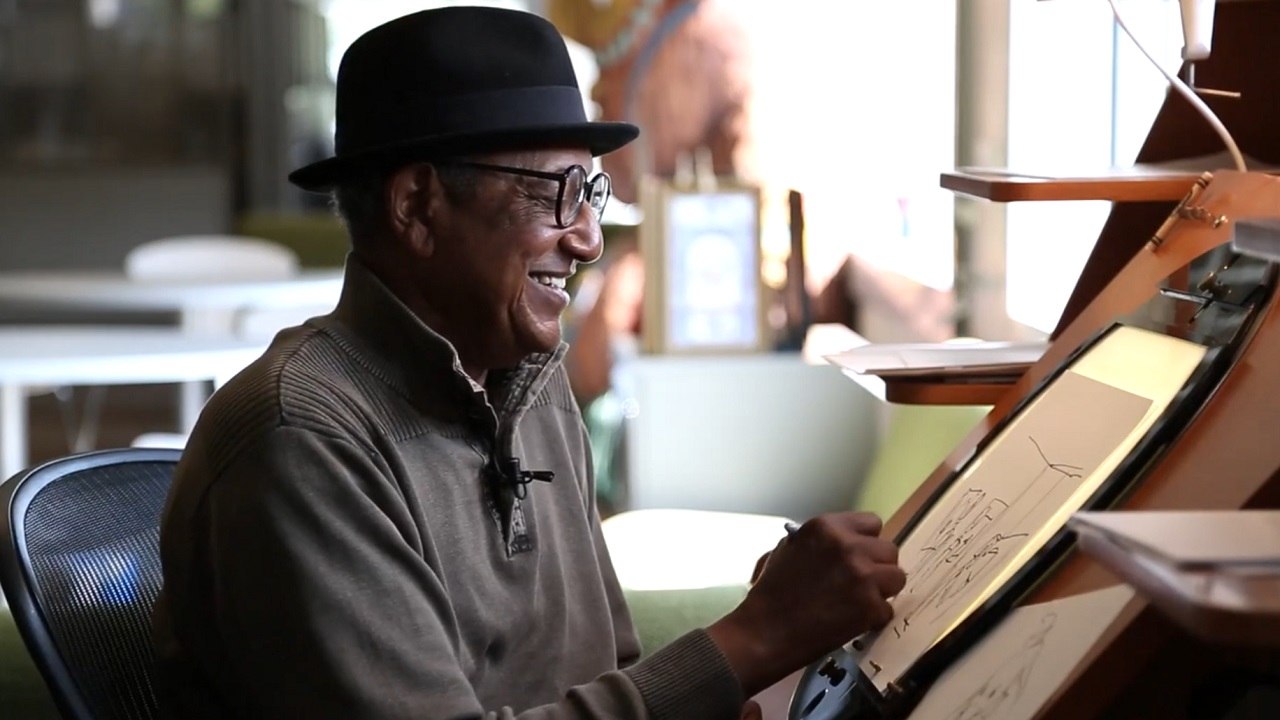

In limited release this weekend, but worth seeking out in your nearest arthouse theater, is I Am Not a Witch, the British submission for this year’s Oscars in the foreign film category. This multi-award winning directorial debut by Zambian-born Welsh writer-director Rungano Nyoni, through the collaboration with cinematographer David Gallego, uses the stunning backdrops of rural Zambia to spin a sometimes surreal, sometimes heartbreaking tale of Shula, a child accused of witchcraft, and declared a witch. Newcomer and previously untrained 9-year-old actress Maggie Mulubwa was nominated for Best Actress at the British Independent Film Awards for her portrayal. What a debut.
It is a rare to watch a film that is at once so languid and tense. I Am Not a Witch is, at heart, a fairy tale. The accused, however young or old they may be, are placed in this exclusively female community, branded on the face as one of them, and outfitted with a spool of thick white fabric that is tethered to their backs. This, the paying tourists who traipse past them are told, is to keep them from flying. Shula is first welcomed by the elders with songs. She is swiftly put to work by a local government official, who dresses her in feathers and paint, trots her out to declare the perpetrator in local crimes, getting paid to do so. This government official has a wife who does his bidding and caters to his every desire. She is a former member of the witch camp, and he threatens to return her to that life if she doesn’t please him in any way he sees fit. He continually reminds her she can be replaced, eyeing Shula with creepy consideration.
For her part, Mulubwa carries a sorrow that reads as both weary and bone deep, as if, rightly, the audience can’t possibly imagine the personal history that has led her to her near muteness and apathy in being exiled, confined, and treated as government property.
From early in the film, viewers must wonder if a camp, such as the one in which Shula is placed, exist in any African country. They must also question if children are accused of sorcery with any regularity. The answer to both questions is yes. Writer/director Nyoni actually spent time at one of the oldest witch camps in the world in Ghana, which has existed for over 200 years. She was the first foreigner to sleep there. There are also such camps in Zambia, which Nyoni says is particularly surprising, given that the Bemba people, the dominant tribe in Zambia, pride themselves in the equality between men and women. The women of the tribe are allowed to own land, inherit, and be in the army and police. It is that contradiction that drew Nyoni to the subject matter and called to her as a writer and first time director. That curiosity led to a beautiful, passionate piece of filmmaking, and gleaned her a BAFTA as director for an Outstanding Feature Film Debut.
There are decidedly lyrical elements of filmmaking, like the bold touches of red in an otherwise bleak, ashen landscape, and the slow, widening shots of Shula seeming to consider the cost of freedom, or even whether such a thing as freedom is possible. They do not dilute the palpable horror of the ingrained misogyny necessary for such witch camps to exist. In reality, those accused are either killed, beaten, ostracized, or relegated to witch camps are often women. They may have transgressed patriarchal gender norms by being economically successful or widowed by husbands with means, or they are orphan children without protectors who bear the brunt of communal fears.
I Am Not a Witch debuted last year at Cannes and in the UK, and has gathered an impressive amount of awards from film festivals around the world. Now it is finally being made available stateside. The timing is interesting, given how much the expression “witch hunt” has been bandied about by top members of the US administration. The irony is witch hunts are almost entirely levied towards women in a society where men are feeling threatened. Those coopting the term would do well to reflect on how many of the policies that are bad for women, limit their autonomy, and reduce their access to equal rights under the law, are being introduced by the very men declaring themselves as unfairly targeted. No. That term is still shockingly alive, and still in literal use against women and girls in many parts of the supposedly civilized world. Nyoni’s film, though fiction, brings that reality home with the best possible use of the female gaze.
5 out of 5 stars



